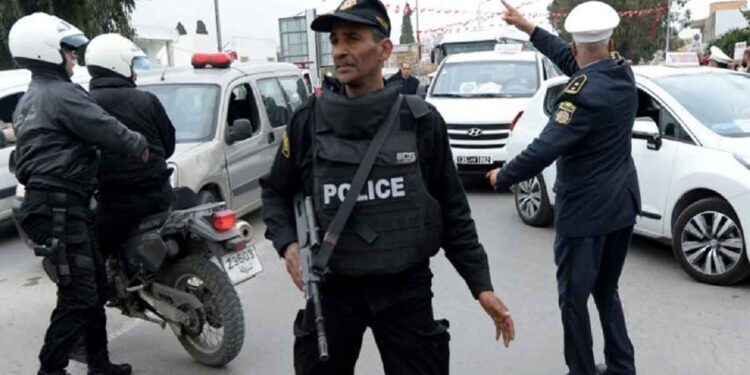On Sunday, Tunisian Security Forces imposed wide security restrictions to prevent the arrival of demonstrators participating in a protest against President Kais Saied, and another protest supporting it.
Large numbers of security forces inspected all roads leading to “Al-Habib Bourguiba” street in the city center and placed iron barriers to separate the protesters in the two stands.
On July 25, President Saeed has announced “exceptional measures”, including the dismissal of Prime Minister Hisham Al-Mashishi, the freezing of Parliament’s decisions, and the lifting of immunity of MPs, as well as arrests and dismissal of a number of officials.
On Wednesday, Saeed decided to abolish the constitutionality monitoring body, issued legislation by presidential decrees, and assumed the executive authority with the help of a government.
Following the announcement of these extraordinary measures, security forces arrested six MPs in the Tunisian parliament, raising fears among human rights organisations that Tunisia will begin an era of tyranny and totalitarianism with disregard for the law, human rights and freedom of expression, especially since some of these arrests were based on military judicial decisions against civilians.
Arab Organisation for Human Rights in the UK (AOHR UK) had expressed its concern about the Tunisian president’s freezing of the work of the Parliament and assuming the executive authority “in an extremist translation of the provisions of the constitution.”
In a statement, AOHR UK stressed that limiting the authorities to the person “the president” is a major crisis that moves Tunisia back to the era of tyranny, eliminates all the gains made by the people in their revolution against Ben Ali’s regime, and gives the chance to eliminate the last hope of the Arab Spring.





























